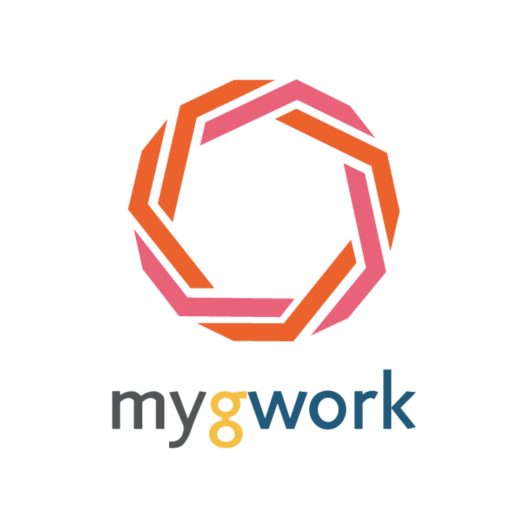
myGwork’s latest research reveals mental health challenges faced by LGBTQ+ professionals worldwide
News
A new study carried out by myGwork to mark Mental Health Awareness Month sheds light on the mental health challenges faced by LGBTQ+ professionals worldwide, both in society and at work.
The findings of the global study, led by social psychologist and LGBTQ+ mental health researcher Marc Svensson, uncover startling statistics that underscore the urgent need for societal and workplace support. Here are just a few of the headline findings:
LGBTQ+ professionals experience higher rates of depression and anxiety, with bi+/plurisexual and gender minority individuals faring the worst.
The survey findings revealed that almost half (45%) of global respondents reported being diagnosed with depression at some point in their lives. This percentage rises to 53.3% for trans and non-binary respondents and to a staggering 59% for the bi+/plurisexual respondents (bisexual, pansexual, queer, and sexually fluid).
Almost one-third (31%) of the respondents also reported they had been diagnosed with general anxiety disorder at some point in their lives. This percentage rises to 40.8% of the trans and non-binary respondents, and 43.8% of the bi+/plurisexual respondents.
LGBTQ+ professionals don’t feel safe in society at large, with geographical differences in feeling of safety and comfort in the workplace
We asked the respondents to what extent they felt they could be themselves in four different environments: with their family, with friends, in the workplace, and in society in general. The survey found that only 13.7% of LGBTQ+ professionals felt they could completely be their authentic selves ‘in society in general’, while the environment in which respondents felt they could be their most authentic selves was ‘with friends’ (72.2%). Respondents were almost equally likely to feel they could be their authentic self with their family (35.7%) as in their workplace (32.6%).
Geographical differences were evident in the data set. The UK (38.5%) alongside the rest of Europe (33.1%) had the highest numbers of respondents reporting being their completely authentic selves in the workplace. Asia came in at 28%, whilst only 23.5% of the North American respondents felt the same way, followed by Africa at 15%.
The geographical differences were less severe when it came to being their completely authentic selves with their family, ranging from 25% in Africa to 41.9% in Europe. Being completely open with friends hovered around the 75% mark in the UK, Europe, and North America, whilst was significantly lower in Africa (50%) and Asia (48%). Being able to be their completely authentic selves in society in general was low across all geographical regions.

Many LGBTQ+ professionals are ‘out and proud’ at work
The prevailing sentiment of feeling safe and comfortable at work likely explains the relatively high levels of openness exhibited by LGBTQ+ professionals in their workplace. More than half of the participants (58%) said they were open about their sexual orientation to everyone or most people at work. This figure jumps to an impressive 79.8% when considering only those who work for a myGwork partner organization.
From a sexual orientation perspective, gay men (69.7%) and gay/lesbian women (64.9%) were most likely to be open to ‘everyone or most people’ at work. Asexual (33.3%), pansexual (36.7%) and bisexual (41.3%) people were least likely to. Asexual (33.3%) and bisexual (26%) people were the most likely groups to report that ‘no one knew’ about their sexual orientation at work.
Cisgender men (67.9%) and non-binary people (64.6%) were the most likely gender identity groups to be open to ‘everyone or most people’ about their sexual orientation at work, followed by transgender women (56.8%) and cisgender women (52.5%). Transgender men (46.7%) were the least likely to be open to ‘everyone or most’ people at work about their sexual orientation. Around 10% in each gender group responded that ‘no one knew’ about their sexual orientation at work.
Employers need to do more to support employee mental health
Responses to our survey questions about workplace mental health support and LGBTQ+ inclusion revealed that more training and support is needed in this area. Only 25.7% had received mental health training in their current workplace. 39.2% had talked to their line manager about a personal mental health concern in the workplace, but just under half (43.8%) of those who had done so felt it had been managed adequately or poorly.
Around half of the respondents worked for an organization that had an LGBTQ+ staff network. Interestingly, in workplaces with LGBTQ+ networks/ERGs, only 38% of the participants were members of these groups.
Furthermore, just under half of the participants (46.4%) felt that their manager was fostering an inclusive environment in which they felt they could be themselves ‘all of the time’ or ‘most of the time’. In contrast, 93.4% of respondents that were managers said they thought they created an inclusive environment for their employees ‘all of the time’ or ‘most of the time’.
The survey and report
myGwork would like to thank everyone who participated in this survey. The full findings of this report will be released during Pride month. The survey of over 1,000 respondents has now closed. The three winners of the home spa treatment vouchers from Urban, valued at £90 each, go to: D Burujon, O Cellamare and Y Beyer.
